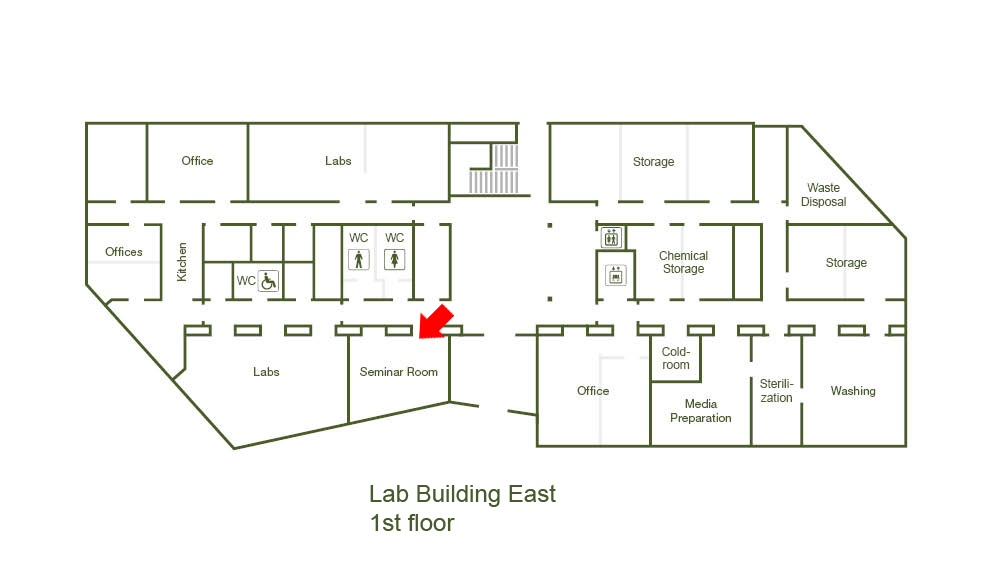Integrative analysis of genomics and metabolomics data elucidate causal mechanism in a rare eye disease
Date:
Monday, June 24, 2019 11:00 - 12:00
Speaker:
Roberto Bonelli (Walter & Eliza Hall Institute of Medical Research)
Location:
Seminar Room, Lab Building East
Series:
Life Sciences Seminar
Host:
Sandra Siegert
Contact:
SIX Rita

Macular telangiectasia type 2 (MacTel), is a rare degenerative eye disease. The first GWA study discovered five loci indicating involvements of the glycine/serine metabolic pathway. Here, we present a causal model of MacTel genetics discovered by integrating different omics data. Using Mendelian Randomization (MR; 476 MacTel cases, 1733 controls) we tested the genetic contribution to disease of >140 metabolites and comorbid traits and found causal effects from serine and glycine (serine: OR=0.5, P=1.08e-33; glycine: OR=0.53, P= 1.31e-25), whilst eliminating other spurious metabolites. Serine was found to cause disease progression (b = -0.54, P = 0.013) based on longitudinal retinal image data for 455 patients. Novel genetic loci were further revealed via conditional GWAS and MTAG (7p11.2, P=2.2E-15; 3p24.1, P=3.1e-08; 19p13.2, P=6.3e-08). Analyses of serum metabolomics data revealed widespread rewiring of reflecting glycine and serine commensurate with genetic disruption. Lastly, we confirmed that genetically induced depletion of serine in MacTel patients likely results in accumulation of deoxy-sphingolipids (MTvsDOXSL b=0.6, P=2.6e-11; SERvsDOXSL b=-1.27735, P<2e-16) which appears extremely toxic for retinal and neuronal tissues, and is associated with disease progression (b= 0.15, P=0.045). Our results significantly advance understanding of disease aetiology and are supporting sensitive diagnostic re-evaluation and targeted laboratory experimentation as well as inclusion criteria for upcoming clinical trials.